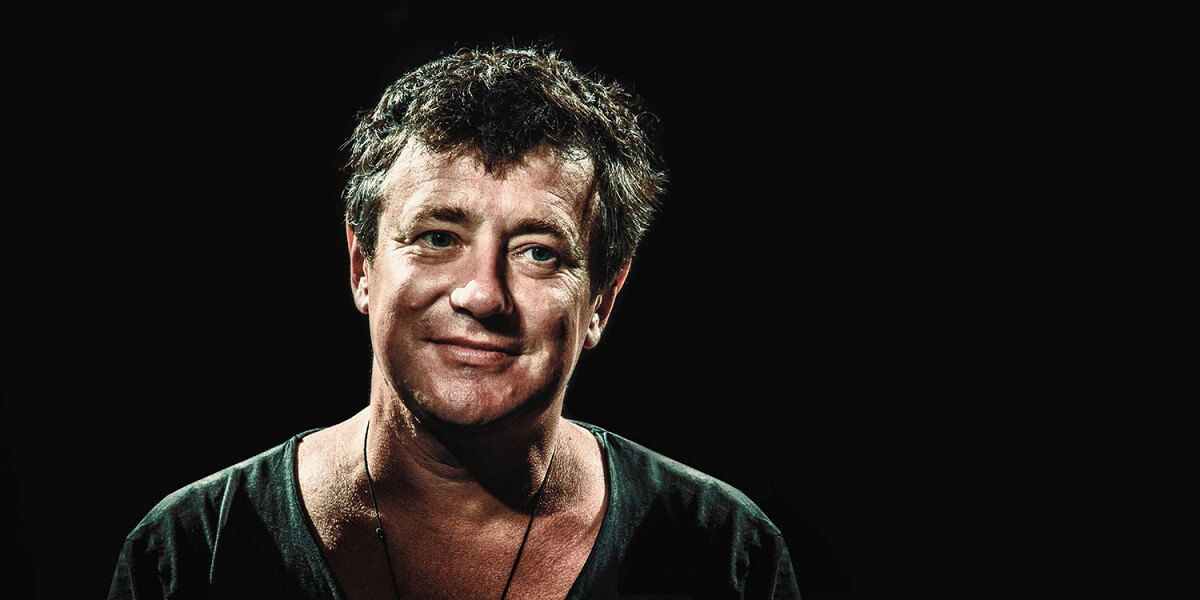How the modern genius of avant -garde music rethought the heritage of the great Russian poet
Tenant of the peaks of Russian rock. Velimir Khlebnikov under the sauce of Leonid Fedorov

Perhaps there is no more interesting and musically distinctive in the entire post -Soviet space of the group than Auktsyon.
Without even trying to take a closer look at modern musical movements, the team under the guidance of his permanent leader Leonid Fedorov conquers those peaks of the irrational, which are probably our descendants. It becomes especially interesting to observe when such blocks turn their attention to the past and look for new guidelines for creativity there. So it happened after, recorded in 1993 and became very commercially successful, the album Bird.
Dissatisfied with too much commercial success, the eccentric leader of the group enters during the period of throwing and searches, who brought Fedorov with one of the most distinctive Russian authors Alexei Khvostenko (tail). The ensuing friendship and, one must think, long conversations about Russian literature and led the musician to the work of the most mysterious from the poets of the Silver Age, the desperate futurist and the original thinker Veliirah Khlebnikov.
Despite his cultness in certain circles, Khlebnikov’s poetry was never accepted at the “cheers” among the broad masses. Unlike his creative ally Vladimir Mayakovsky, the main ideologist of the futurists did not seek to express the whole storm of his passions in the lyrics. Much more than him, as mathematics, was interested in the deepest laws of the movement of being, time and sound. Fedorov himself, having studied the work of the “will be” (so, instead of a foreign “futurist”, he called himself a poet, in an effort to cleanse his tongue from foreign impurities), spoke about Khlebnikov as follows:
“I actually believe that Khlebnikov is the first poet that grabbed and developed a very important idea: he realized that there is a meaning not only in a combination of sounds, but also in each individual sound. Of course, Pushkin is also beautiful with Pushkin, and the lines themselves flow, and also the music inside, but it was Khlebnikov who realized that music could be even in one single sound. And when you enter it, when you understand that behind all these strange sound combinations there is the meaning of some kind of unearthly-it is simply shocking ”
It is the desire to seize the power of sound, its music, which then fills the whole word, the phrase with beauty, and is related by the work of the Auktsyon with its predecessors – the futurists and their followers of the Oberiuts. The first years of the slope into theatrical actions have grown out in the group into tense spiritual searches. The hobby of Khlebnikov, which arose in conjunction, inevitably grew into an album, based on the verses of a significant Russian poet.Thus, the “tenant of the peaks” born in 1995 became the result of tense creative searches. The hard work, combined with the indefatigable energy of the musicians, allowed us to shift to music poems that were previously considered impossible for perception to anyone except the most sophisticated literature lovers.
Despite the experimental nature of the album, the musicians deliberately abandoned the use of synthesized sound. However, in its desire to reflect the full bizarre treasures of Khlebnikov’s art world in music, the group involved a huge number of various instruments, ranging from the Egyptian reed and ending with the Hawaiian guitar. Fedorov himself claimed that in the studio they even played on brooms and gas cylinders in order to obtain the desired sound. What did all this riot of words and sounds result in?
Starting from the very first composition of the album “Bobeobi bag” Khoostenko and “Auktsyon” immerse the listener into the atmosphere of penetration into the secret facets of reason, as if reminding the fact that the album is dedicated to the creator of the “abstruse language”, a language leading away from all kinds of generally accepted ideas, and focusing in his construction on the human unconscious. As an epigraph for the song, Khlebnikov’s poem is used, giving us an idea of the character, both the creativity of the poet and the idea of him musicians:
Things scattered on the floor.
On the lips of the hanged man
In the skillful hands of Auktsyon and Khorostenko, “Bobeobi” turns into a hypnotic mantra, a spell, and it was the spell properties that gave the bread to the abstruse tongue. The repeated fractional rhythm, the monotonous repetition of the bobeobi backwatzer, the freely transfused jazz pipe, become an organic addition to the poet’s vision.
In a completely different manner, the next song of the album Blagovest is performed. Already being fully immersed in the world of Khlebnikov’s fantasies, the listener feels a new call that opens the song:
Big alarm in the mind, in the bell of the mind!
All shades of the brain will pass in front of you at the look of all the genera of reason.
Here! Sing all together behind me!
The thought of the poem is emphasized by the performance by the performance: the sound of the voice is stylized under the announcement distorted by the loudspeaker, transmitted by a deliberately everyday voice. The hymn of Zaumi is replaced by a nostalgic song about the loss of harmony with the world Iverni Turn. The text of the song was an excerpt from Supervision of Khlebnikov “Zangezi”, which became one of his fundumental works, summing up his whole work. The term “superweight” was invented by Khlebnikov himself, who sought to create a multilayer literary work. In the introduction of Zangezi, the poet writes: “The story is architecture from words. Architecture from Tales is superior.
The plot of the poem is largely echoing with the treatise “so said Zarathustra” by Friedrich Nietzsche.Zangezi, like Zarathustra, seeks to convey secret knowledge to the inhabitants in order to bring humanity to a new stage of development. Burdened with reflections on the road, we see him in an excerpt that became the basis of the song Auktyona. The melancholy mood of the song, the motive of the road is emphasized by a lingering, high-sounding guitar, the motive of the road is emphasized by a “jumping”, rhythmic and abrupt rhythm guitar. The vocal part, also imitating jumping thoughts, is performed in a recitative manner.
It should be noted that some songs are short sketches. In such songs, mainly small poems by Khlebnikov are used, which the musicians consciously do not seek to unfold into a large-scale picture, limiting themselves to brief bursts that reflect certain layers of Khlebnikov's artistic reality. Such songs include The Coffin. The song Mogatyr sounds like a real anthem of human strength, vivacity, omnipotence. From now on, a person “can”, and therefore a “strongman”, actions that previously seemed unthinkable are available to him:
The first of the two closing compositions of the album, entitled A Merry Place is a recitation of the final, twenty-first plane of the super-story Zangezi, in which the townsfolk discuss the news about the death of Zangezi read in the newspaper, after which the hero himself enters and reports:
It was a stupid joke
The end of the excursion to the world of Khlebnikov is marked by the return in the final composition to the poem “lips were sung to Bobeobi…”. Such an annular composition of the album is due to the desire to create a feeling of traveling through the mind-chambers of the great poet. Deprived of a clear plot structure, Dweller of the Peaks says goodbye to the listener with a lingering ringing, which marks the end of the meditation session.
What did this journey lead to? The album became a landmark not only in understanding the classical heritage in rock music, but also in the work of the group. The process of its creation was significantly different from the classic examples of studio work, and it is no less difficult to call a rock album in the generally accepted sense Resident of the Peaks. The work, unprecedented in its depth, however, pushed the boundaries of Russian rock music. It turned out that the musicians have something to complement the literary exploits of their predecessors. And now the punks are singing Mayakovsky's poems in the album Cloud in Pants, and the rappers who have captured the cultural firmament are refreshing the lines of Gumilyov and Mandelstam in the memory of the new generation.
Along with other works that comprehend the work of great Russian poets, The Resident of the Peaks throws a bridge into the past. The bridge that our young, uprooted culture needs so much.


